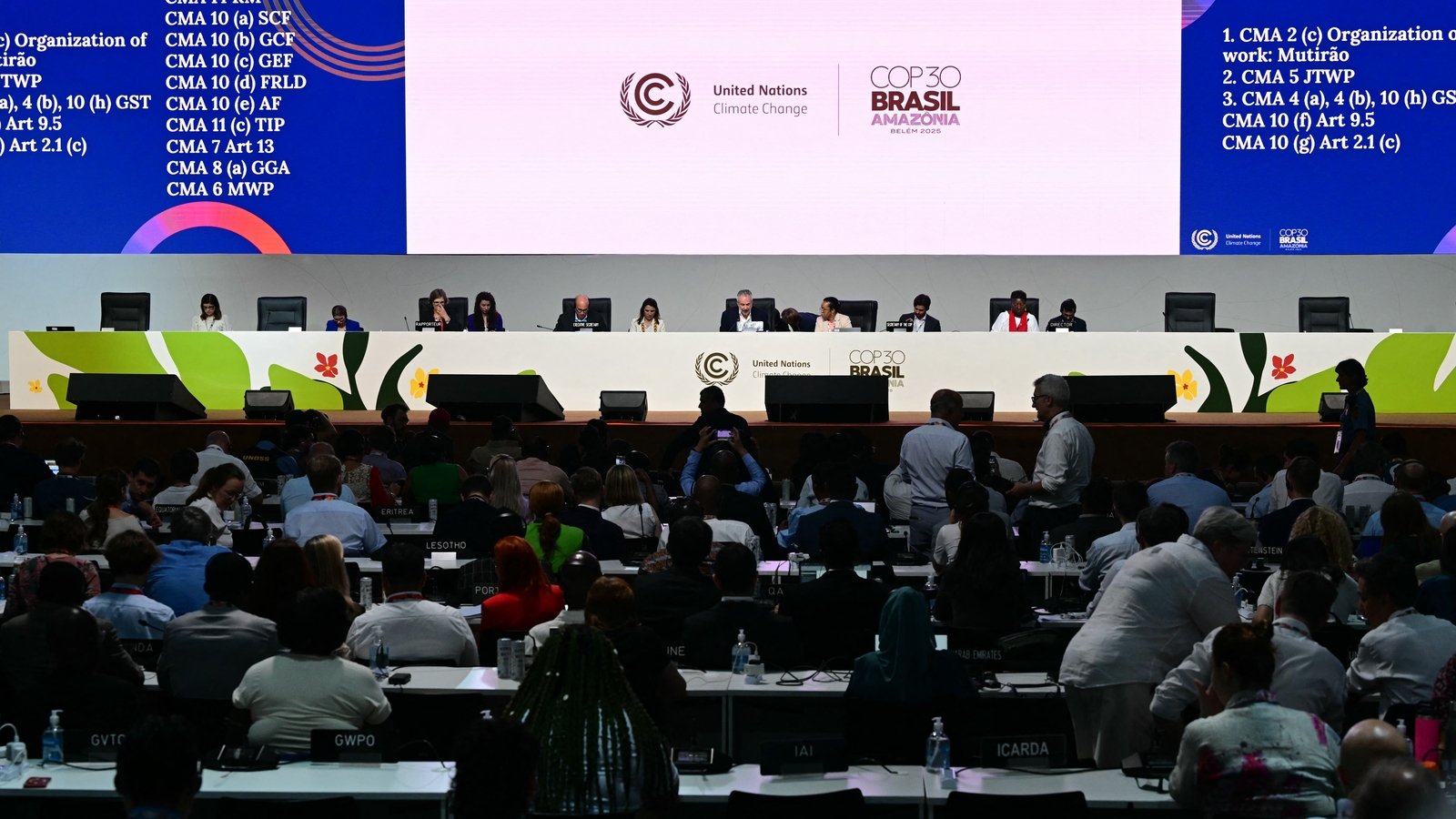World governments have agreed to a compromise climate deal at the COP30 conference in Brazil that would boost finance for poor nations coping with global warming but omit any mention of the fossil fuels driving it.
In securing the accord, countries attempted to demonstrate global unity in addressing climate change impacts even after world’s biggest historic emitter, the United States, declined to send an official delegation.
“We should support it because at least it is going in the right direction,” the European Union’s climate commissioner, Wopke Hoekstra, told reporters.
COP30 President André Aranha Corrêa do Lago has suspended the closing plenary of the summit after several countries complained that their concerns about parts of the deal had not been heard properly.
Minister for Climate, Energy and the Environment Darragh O’Brien said Ireland supports the decision by the EU to accept the text.
However, he said it “falls sort of meaningful ambition on the most critical of our time – reducing emissions to mitigate the worst effects of climate change”.
“In particular, it fails to include a credible roadmap for the phase-out of fossil fuels, a step more than 80 countries, including Ireland, called for earlier this week,” said Mr O’Brien.
“Ireland believes that prevention is always better than cure.”
Mr O’Brien said choosing to accept the text was “not a choice made lightly”.
The Belem deal launches a voluntary initiative to speed up climate action to help nations meet their existing pledges to reduce emissions, and calls for rich nations to at least triple the amount of money they provide to help developing countries adapt to a warming world by 2035.
Scientists have said existing national commitments to cut emissions have cut projected warming significantly, but are not enough to keep world temperatures from breaching 1.5C above industrial levels, a threshold that could unleash the worst impacts of climate change.
Developing countries have argued in the meantime that they urgently need funds to adapt to impacts that are already hitting, like rising sea levels and worsening heat waves, droughts, floods, and storms.

The two-week conference was billed as a chance to show that nations can still join forces to tackle climate change
The agreement also launches a process for climate bodies to review how to align international trade with climate action, according to the deal text, amid concerns that rising trade barriers are limiting the adoption of clean technology.
Avinash Persaud, Special Advisor to the President of the Inter-American Development Bank, a multilateral lender focused on Latin America and the Caribbean, said the accord’s focus on finance was important as climate impacts mount.
“But I fear the world still fell short on more rapid-release grants for developing countries responding to loss and damage. That goal is as urgent as it is hard,” he said.

Minister for Climate Darragh O’Brien said choosing to accept the text was ‘not a choice made lightly’
The European Union had been pressing for language in the official deal on the move away from fossil fuels, but had come up against stiff resistance from the Arab Group of nations including top oil exporter Saudi Arabia.
That impasse was resolved after all-night negotiations Friday led to an agreement that the issue could be left out of the accord and included in a side text put forward by COP30 host Brazil.
Fossil fuel pledge moved into ‘roadmap’
The COP30 President said that the presidency would publish a side text on fossil fuels as well as on protecting forests – instead of adding them to the official agreement – as there had been no consensus on these issues at the global climate talks.
“I will announce that the Brazilian presidency will do the two ‘roadmaps’ because visibly we did not have maturity to reach consensus. I believe if we do it under the presidency we will have results,” he said.
Separately, a Leaders’ Declaration from a G20 meeting in South Africa stressed the seriousness of climate change, in a snub to US President Donald Trump.
A new draft agreement unveiled earlier this week by COP30 host Brazil made no mention of “fossil fuels” or the “roadmap” that President Luiz Inácio Lula da Silva had himself publicly championed.
Speaking on condition of anonymity, a European delegate said the bloc was being cast as “villains” for refusing to back the deal.
Some member states were weighing a walkout, the delegate added, while others feared being blamed if the talks collapsed.
The conference had also been disrupted for several hours on Thursday by a fierce blaze that tore a hole in the venue’s roof as well as by two Indigenous-led protests last week.
Thirty-six countries, including wealthy nations, emerging economies and small island states, had warned in a letter to Brazil that they would reject any deal that did not include a plan to move away from oil, coal and gas.

